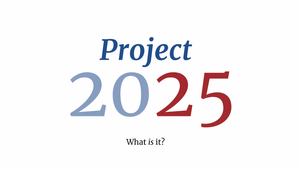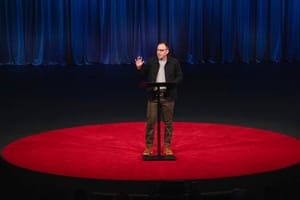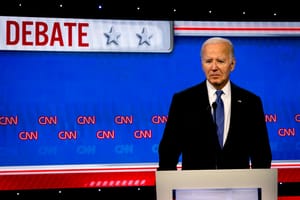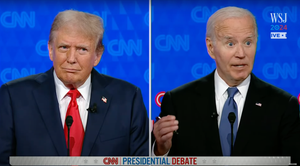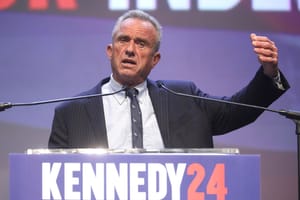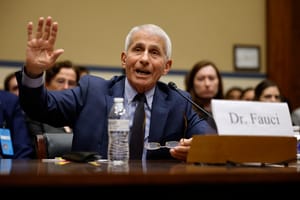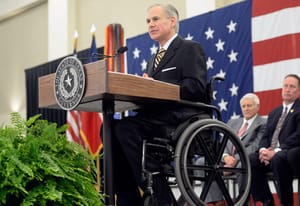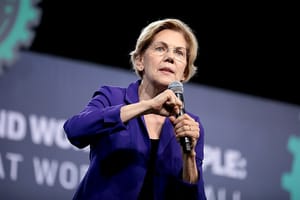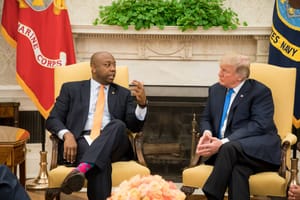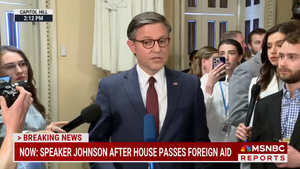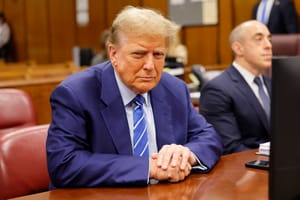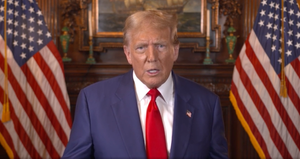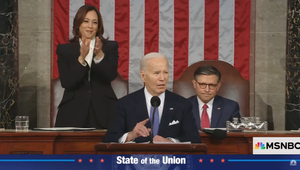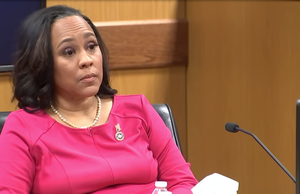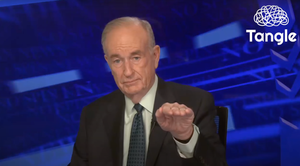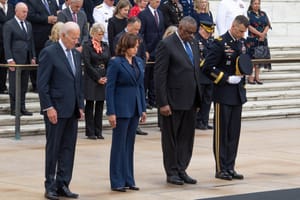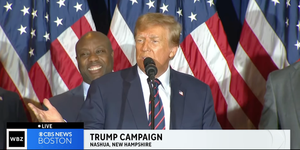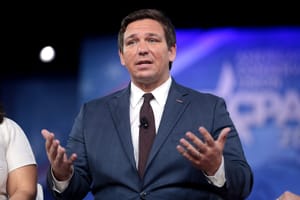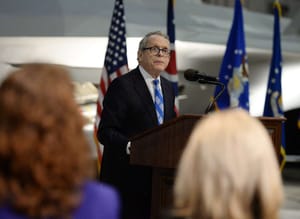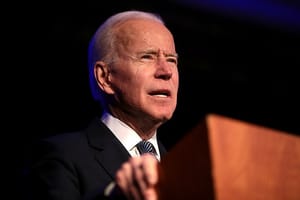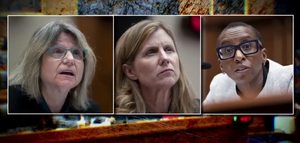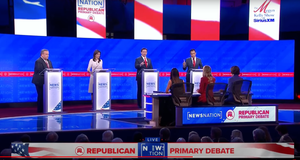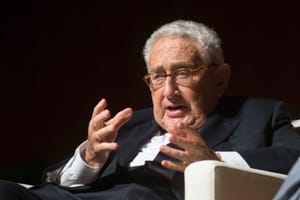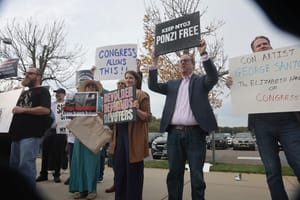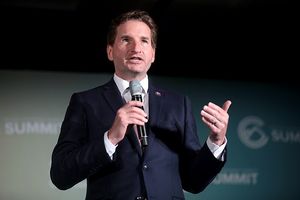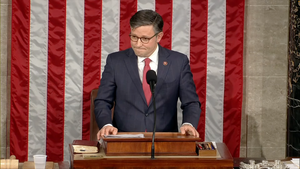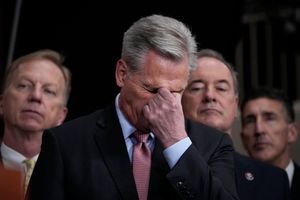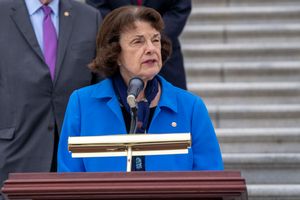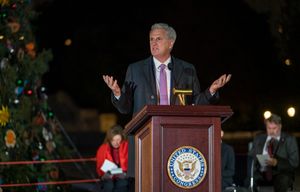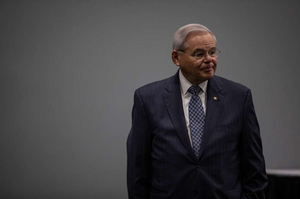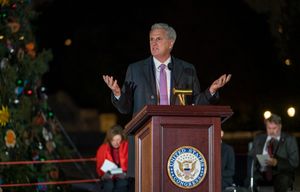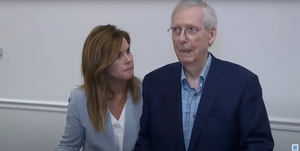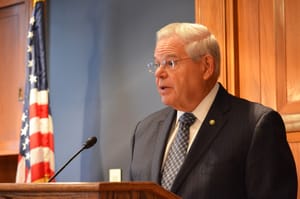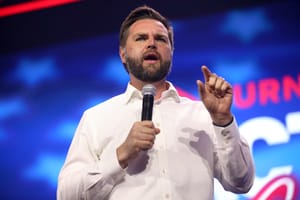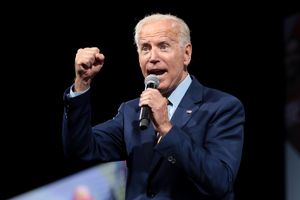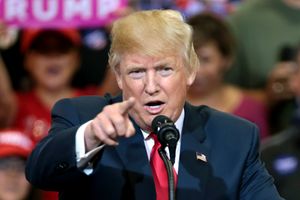Part 1: Everything you need to know about Kamala Harris.

I’m Isaac Saul, and this is Tangle: an independent, nonpartisan, subscriber-supported politics newsletter that summarizes the best arguments from across the political spectrum on the news of the day — then “my take.”
Are you new here? Get free emails to your inbox daily. Would you rather listen? You can find our podcast here.
Dear readers,
Today’s deep dive on Vice President Kamala Harris got lengthy enough that we needed to break it up into two newsletters. This is Part 1, which we are sending to our entire mailing list for free. In it, we cover her upbringing, her history in politics, how she was chosen to be vice president, and where she lands on major policy issues.
In Part 2, which we’re going to release at 1pm ET and send to Tangle members, we’ll cover what her critics say, what her supporters say, and then my take.
Part 1: The beginning.
Vice President Kamala Harris will be the Democratic nominee for president.
She is now backed by President Joe Biden, House Minority Leader Hakeem Jeffries (D-NY), Senate Majority Leader Chuck Schumer (D-NY), former House Speaker Nancy Pelosi, former President Barack Obama, and nearly every major Democratic governor. She has also received pledges from a majority of the Democratic National Convention delegates. In order for someone to dislodge her, they'd have to challenge her at the convention, flip some of her hundreds of pledged delegates, and convince the party they could beat Donald Trump with a mere three-month presidential campaign.
Given that, we thought it would be worthwhile to do a deep dive on Harris. Today, we're giving you a breakdown of her upbringing, her history in politics, how she was chosen to be vice president, her complicated history with criminal justice, and where she lands on major policy issues.
Finally, in Part 2, we'll share arguments about her candidacy from supporters and detractors, and I'll offer my personal analysis about her odds against Trump and her strengths and weaknesses.
Upbringing.
Harris is the child of immigrants; her father is Jamaican and taught economics at Stanford University, and her mother is Indian and worked as a cancer researcher. Her parents were active in left-wing political circles and participated in the civil rights movement (often bringing their children to protests). Harris’s parents divorced when she was seven, and her relationship with her father has appeared strained at times; in 2019, he criticized his daughter for her comments (made in jest) on a radio show about supporting the legalization of marijuana use due to her Jamaican heritage, saying, “Speaking for myself and my immediate Jamaican family, we wish to categorically dissociate ourselves from this travesty.” Kamala’s sister, Maya, is a public-policy advocate who also served as the campaign chairwoman for her 2020 presidential campaign.
Harris attended Howard University, a historically black college in Washington, D.C., where she studied political science and economics, then earned her law degree at the University of California College of the Law.
Early career.
Harris’s career began shortly after she passed the bar. In 1990, she joined the Alameda County District Attorney’s office in Oakland focusing on prosecuting sex crimes, then moved to the San Francisco District Attorney’s office, where she notably ended the office’s practice of prosecuting teenage girls on prostitution charges and sponsored a bill putting the crime of human trafficking into the state criminal code.
Harris made her first foray into politics in 2003 when she ran for San Francisco district attorney, winning in a runoff and becoming California’s first black woman district attorney. Seven years later, she ran for California Attorney General as a heavy underdog against Los Angeles District Attorney Steve Cooley (R). Harris ended up winning the race by 0.8% after three weeks of vote counting.
Her tenures as district attorney and attorney general were occasionally controversial. With the launch of her campaign for attorney general in 2009, Harris published a book, “Smart On Crime: A Career Prosecutor's Plan to Make Us Safer.” In it, Harris imagined a criminal justice system focused on reform-minded policies and argued that impoverished communities benefit from a visible law-enforcement presence. While the book elevated her political profile, it would later serve as the basis of criticisms of Harris from the left, who have derided her pro-police stance.
While Harris earned a reputation as an effective prosecutor (San Francisco’s conviction rate rose from 52% to 67% in her first three years as district attorney), she received criticism from some constituents for policies they saw as overly harsh.
Particularly controversial was her decision to prosecute parents whose children were chronically absent from school; Harris prosecuted 20 parents under the law (none were sentenced to jail time) and claimed the truancy rate in the district dropped 32% as a result, but the approach was unpopular with many in the community. As California Attorney General, Harris declined to support ballot measures on three animating issues for criminal justice reformers — making drug possession a misdemeanor, legalizing cannabis, and eliminating California’s three-strikes law.
Harris also invited controversy from centrist Democrats and conservatives for stances on LGBT rights that were progressive for the time. As San Francisco DA, she officiated some of the country’s first gay marriages and as California AG advocated for the repeal of Proposition 8, which banned gay marriage in the state. LGBTQ advocates laud Harris for opposing the “gay/trans panic defense” as DA, but also criticize her for blocking a gender-transition surgery for an incarcerated trans woman as AG (the inmate eventually won a court case to receive the surgery).
During her rise through California politics, Harris also battled accusations that she was handed political opportunities without earning them as a result of her relationship with Willie Brown, the former Mayor of San Francisco. Brown and Harris dated while Brown was the speaker of the California state assembly and Harris was a young prosecutor, and he appointed her to lucrative positions on the California Unemployment Insurance Appeals Board and the Medical Assistance Commission. Although the two broke up shortly after Brown was elected mayor in 1995, many critics suggest to this day that Brown leveraged his political influence to elevate Harris early in her career. Notably, Harris did not run for elected office until eight years after her relationship with Brown ended.
By 2012, Harris was a rising star in Democratic politics, delivering an address at the 2012 Democratic National Convention and garnering attention for her work as California Attorney General. In 2015, Sen. Barbara Boxer (D-CA) announced that she would not seek reelection, creating an opening for Harris to take the next step in her career. She was recruited by party leadership to run for the seat in the 2016 election and won by 25 points.
Her path to the vice presidency.
On November 8, 2016, the same day that Donald Trump defeated Hillary Clinton to win the presidential election, then-California Attorney General Kamala Harris defeated fellow Democrat Rep. Loretta Sanchez to win California’s Senate election. She was the second African American woman and first woman of South Asian descent to be elected to the Senate. During her term as Senator, Harris would build the progressive bonafides she would use to run for president in the 2020 Democratic primary.
Harris served on several committees during her four years in the Senate, where she was perhaps best known for her questioning of Trump administration Attorney General Jeff Sessions as a member of the Intelligence Committee in 2017, as well as her grilling of Supreme Court nominee Brett Kavanaugh in 2018 and of Trump administration Attorney General Bill Barr in 2019 as a member of the Senate Judiciary Committee.
Harris also made maternal health a focus of her legislative efforts. She introduced several bills aimed at curbing the maternal mortality crisis in the United States, most notably as a co-sponsor of the “momnibus” package of 13 bills aimed at improving the nation’s maternal health, with a focus on black women.
Senator Harris was rated the most liberal senator by GovTrack in 2019, a nonpartisan group tracking Congress, due in part to her lack of sponsorship of bipartisan bills. According to GovTrack, just 15% of the bills Harris sponsored were labeled as bipartisan, the lowest proportion of anyone in the Senate.
In 2019, Harris directed her focus to national politics. Weeks after the publication of her memoir “The Truths We Hold” in January 2019, Harris announced she would be seeking the Democratic nomination for the presidency. After she was endorsed by Joe Biden in her 2016 Senate run, Harris became the former vice president’s direct competitor, clashing with him several times while on the campaign trail. The two were paired in the same candidate group for the first and second primary debates, and in the first debate Harris attacked Biden’s opposition to busing early in his Senate career. “There was a little girl in California who was a part of the second class to integrate her public schools, and she was bussed to school every day, and that little girl was me,” Harris told Biden.
During the campaign, Harris continued to draw attention for her debate performances, in which she focused on Donald Trump’s electability and women’s healthcare issues. However, her background as a prosecutor was a roadblock to connecting with the progressive left, and she failed to separate herself from the middle of the pack and gain enough momentum to reach the New Hampshire primary. After qualifying for the sixth debate along with six other candidates, Harris abruptly suspended her campaign in December 2019, citing a lack of funds. Harris raised about $40 million over the length of her presidential campaign (for comparison, Cory Booker also dropped out before the sixth debate and raised about $27 million). In March, following Biden’s dominant Super Tuesday performance, Harris endorsed Biden for the Democratic nomination.
However, Harris’s sparring with Biden influenced the former vice president’s estimation of her as a running mate when he became the party’s presumptive nominee. Though Harris was among those on the short list for the position, reporting indicated that Biden was not initially leaning toward selecting her.
“He and members of his family had long expressed discomfort with the way she attacked him at a Democratic primary debate, and his political advisers remembered well the seemingly constant dysfunction of her presidential campaign,” according to a profile in The New York Times. “There was a particular distrust in the Biden camp for the sharp-elbowed California operatives with whom Ms. Harris has long surrounded herself, fearing that they might seek to undermine Mr. Biden in office to clear the way for Ms. Harris in 2024.”
In the end, however, demographics formed a major part of Biden’s decision to select Harris, according to Sen. Harry Reid (D-NV). “I think he came to the conclusion that he should pick a black woman,” the late senator said at the time. “They are our most loyal voters and I think that the black women of America deserved a black vice-presidential candidate.” Other considerations in Harris’s favor were her relative youth, her relatability on the campaign trail, and her prominence among Senate Democrats in responding to the coronavirus pandemic and calls for police reforms.
As vice president, Harris joins a long list of predecessors who have struggled to define themselves in the role. The issue she has been most visibly tied to is immigration. She was tapped by Biden to “address the root causes of migration in Central America” in February of 2021, particularly to help address the current flow of migrants. Her role was to act on the administration’s philosophy that resolving the surge of migration at the border required working with migrants’ countries of origin in Central and South America to address their reasons for leaving home.
At the time Biden announced Harris’s directive, monthly encounters at the southern border had increased from 78,000 in January 2021 to over 100,000 that February. Monthly encounters would climb to over 150,000 in March and stay above that threshold until June 2024, peaking at just over 300,000 in December 2023.
Ineffectiveness, confusion, and mixed messaging prompted harsh criticism of Biden and Harris from both Republicans and Democrats amid the historic number of migrant encounters. Harris drew rebukes from many liberals for comments she made in an address in Guatemala, where she told a crowd, “Do not come… If you come to our border, you will be turned back.” Conservatives criticized her for not prioritizing the southern border — as vice president, she visited only once.
Conversely, Harris can claim a number of accomplishments from her time in office. As vice president, she cast a record 33 tie-breaking votes in the Senate, including the decisive vote on the Inflation Reduction Act of 2022, one of the Biden Administration’s signature pieces of legislation. She is also credited for her advocacy for gun control, voting rights and other Democratic legislative priorities, but the effort she is given the most credit for is her focus on abortion rights.
The issue was a central plank of Democratic campaigns across the country in the 2022 midterms, and Harris has maintained her position as a vocal proponent of abortion access throughout her term in office.
“Since Roe fell, she has met with leaders from 38 states, including lawmakers from 18 states,” Philip Elliott wrote in TIME. “She’s been subtly making herself the voice with a megaphone no one can ignore.”
Kamala on crime.
We’ll get into Harris’s stances on various issues below, starting with the one that is most difficult to define (and garnered the most questions from our readers): crime. Throughout her time in various elected offices, Harris can aptly be described as a “progressive prosecutor” — a person interested in both enforcing the law but also adopting more progressive policies for sentencing, like leniency in punishments for nonviolent “third strike” offenses, a focus on alternatives to incarceration, and opposition to the death penalty. In her 2009 book on crime, she writes about safety as a basic human right, and the need to preserve that right by enforcing the law. These positions have amounted to a career of walking a fine line on criminal justice reform, often prompting Harris to change her stances or to hold seemingly contradictory positions.
To get a full picture of Harris’s positions on crime, it can be helpful to examine some of the notable moments during her time spent in her various elected offices.
San Francisco District Attorney, 2004-2011. Kamala Harris won her first position in elected office by defeating incumbent Terence Hallinan, running a tough campaign where she attacked her boss’s conviction rate of 52% for being well below the statewide average of 83%. She adopted her predecessor’s policies of supporting medical marijuana legalization, but not recreational legalization, and opposing capital punishment. Her opposition to the death penalty was tested in her first year in office when she refused calls from Senator Dianne Feinstein and newly elected Mayor Gavin Newsom to seek the death penalty for a man found guilty of killing a police officer.
As San Francisco DA, Harris made fighting recidivism a central focus. In 2005, she launched the Back on Track program to help non-violent first-time drug offenders get high school diplomas. The program achieved a recidivism rate of under 10% for its participants, and was lauded by the Department of Justice for its effectiveness and for saving taxpayers money.
In 2008, following a triple murder by an unauthorized migrant, Harris backed a rule from Mayor Newsom to inform Immigration and Customs Enforcement (ICE) about minors arrested on felony charges. The policy challenged San Francisco’s status as a sanctuary city.
California Attorney General, 2011-2017. As attorney general, Harris brought cases that resulted in the largest monetary recoveries in California history, fought against foreclosures by pushing for a Homeowners Bill of Rights, urged the U.S. Supreme Court to uphold affirmative action, pushed for implicit bias training in the use of deadly force, and joined Gov. Jerry Brown (D) in fighting to release fewer prisoners than ordered by courts. She received plaudits for winning large corporate settlements as well as scrutiny for apparent tolerance of prosecutorial misconduct.
Harris also changed a few of her stances as California Attorney General. AG Harris did not support a statewide rule to require police officers to wear body cams, warning against adopting a “one size fits all” approach for the state; however, she did pilot a body cam program within the California DOJ earlier in her tenure, and she has been a proponent of body cams since leaving the office. And while she stated there should be “no exceptions” for not pursuing the death penalty as San Francisco DA, she argued in favor of seeking the death penalty while serving as California Attorney General.
U.S. Senator, 2017-2021.
As a senator, Harris retained her interest in criminal justice with her position on the Judiciary Committee. Her most high-profile moments in the Senate on crime were sponsoring two bills that both failed to pass: one to make lynching a hate crime and another to reform cash bail, co-sponsored by Sen. Rand Paul (R-KY). In 2018, Harris voted for the bipartisan First Step Act — a bill signed by President Trump aimed at reducing federal incarcerations and recidivism — but also wrote a long Twitter thread criticizing the bill.
In the unrest following the death of George Floyd in May 2020, Harris positioned herself as an advocate for police reform but avoided explicitly agreeing with the phrase “defund the police.” In an interview on The View, Harris called for directing more funding from police to mental health and homelessness resources.
Vice presidency.
Vice President Kamala Harris supported initiatives on gun reform, including the effective implementation of state red-flag laws and efforts to reduce access to guns for people under the age of 21. In 2022, Harris joined Biden in championing the Bipartisan Safer Communities Act, widely regarded as one of the most significant pieces of gun control legislation in decades. She was endorsed by a coalition of gun safety groups almost immediately after Joe Biden announced he would be dropping out of the presidential race.
Other policies.
As a quick rundown, based on her track record in elected office, here is where Harris stands, or has stood, on positions expected to be central to the presidential race.
Abortion: Harris is a staunch and vocal supporter of abortion rights, as well as in vitro fertilization and access to contraception. She blames Trump for the court’s overturning of Roe v. Wade.
Border Security: Harris began her vice presidency by focusing on the root causes of migration from Central and South America. More recently, she has called on Congress to pass the bipartisan border security legislation proposed by the Biden administration and rejected by Republicans. Given the salience of this issue in her campaign, Harris may reiterate the positions in that bill — funding for border security, pathways for legal immigration, and passing foreign aid.
Climate: As a candidate for the Democratic presidential nomination, Harris has called for a fracking ban and said she would eliminate the filibuster in order to pass the Green New Deal. As Vice President, she has defended Biden’s stance of not banning fracking and not backing the Green New Deal — Harris will likely pursue the latter policy positions, since her path to the White House is expected to go through Pennsylvania, where a pro-fracking stance is popularly believed to be a winning one among crucial swing voters.
Economy: Harris has touted the pandemic recovery under the Biden administration and can run on recent strong GDP growth and jobs numbers. As a senator, her tax plan included repealing Trump’s tax plan, cutting individual tax rates, raising corporate tax rates, increasing renter and parental tax credits, and taxing financial transactions.
Health Care: In 2017, Senator Harris co-sponsored the Medicare for All Act with Sen. Bernie Sanders (I-VT). During her campaign for president in 2019, Harris said she opposed the Sanders plan, but instead supported a different state-run Medicare-for-All package that allowed private insurers to compete within it. As vice president, she instead took up Biden-administration talking points on reducing prescription drug prices and supporting maintaining subsidies introduced by the Affordable Care Act that are set to expire in 2025.
Differences with Biden: In general, Harris tacks to the left of Biden on issues where they differ. While there isn’t much of a gap between them on education and economic policy — and there is some uncertainty over how Harris will position herself on border security, climate, and health care — Harris supports more regulation than does Biden for artificial intelligence and data security, and she has expressed more public sympathy than the president for Palestinians in Israel’s war in Gaza (though that position may also be evolving).
Part 2: Supporters, critics, and my take.
In Part 2, which we’ll release at 1pm ET for Tangle members, we’re going to break down some arguments from Harris’s supporters and her critics. Then, I’ll share my take on her five biggest strengths and weaknesses. Stay tuned!








